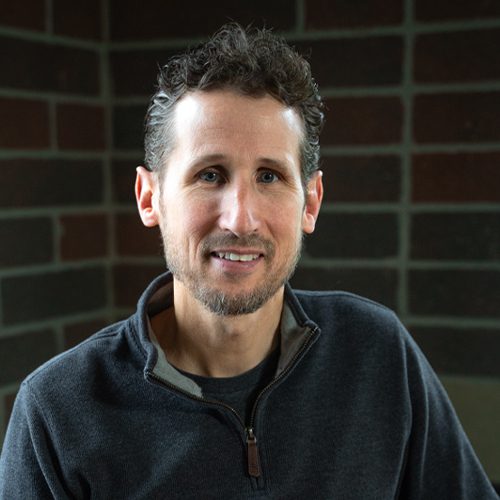
Everyone is partial to their own culture.
The way you grew up is important. It imbeds realities and expectations in you that are part of your core. Everyone is partial to their own culture. Your heart language, your economic reality, your customs, religion and geography all deeply affect how you think and how you observe the world.
Throughout the gospels we see Jesus and His evangelists (primarily Jewish men) interacting with and respecting other cultures.
Culture is closely connected to religion.
One of the biggest challenges with respecting the cultures of others is that culture is usually intertwined with religion. When our intent is to share the gospel of Jesus, we must be careful to respect culture while sharing truth. Since our nation was built on biblical principles by God-fearing people, American Christians must be particularly careful to not connect our faith in Christ with American culture.
When our intent is to share the gospel of Jesus, we must be careful to respect culture while sharing truth.
I was thrilled when my Hindu neighbors, Sreeyan and Aadya, invited me over to their house for coffee to hear the message of Jesus. For two hours, I had the privilege of sharing the gospel with them by taking them through the Exchange Message, using the Gospel Presentation System, (GPS). They were kind, asked great questions, and lightly pushed back on some things that were hard for them to accept. In the end, they both expressed appreciation, but neither were ready to place exclusive faith in Jesus. (It’s hard for a Hindu to accept the fact that there is one God and one Way to Him.) As our conversation was concluding, I asked them a few questions about their culture. It began unintentionally. “Who is the elderly man in the giant picture on your wall? Is that one of your fathers?” “That’s our guru!” they said. “He’s dead now, but our region of India considers him our ‘holy man’. What he says goes!” “Interesting,” I said. “Does he have special credentials or sanction from someone else? Why is he the guru?” “We are not sure,” they said. “It’s just the way it is. Maybe you would like to see our idols?” Aadya said. “OK,” I responded respectfully, but hesitantly. “Oh, we love them! I’m sure you will too.” As we walked toward their shrine, I started to feel a bit queasy about my kindness. Staring back at me were two life-size, anatomically correct, pornographic wooden images. How do you keep witnessing with that glaring you down? I admit that I panicked a little. How to divert the conversation away from these idols? “Please tell me about the grey dot you wear on your forehead.” “Oh, that is __________” Because of the language barrier and their heavy accent, I misunderstood what she said. So she had to repeat it 3 times until her husband used another crass English term to describe what it was. I had no idea that it was a cultural thing they thought of as normal. They burn cow dung into ashes, collect the ashes and mix them with water, creating a light grey paste to apply to their forehead. Naturally, I was curious as to why they would do such a thing. “It connects us to the earth!” “I’m sure it does” I thought, but did not say.
While sharing gospel truth, do not disrespect culture
None of their culture nor their religious practices were familiar to me. I would never think to hang a giant picture of someone I do not know with credentials I do not understand on the wall of my home, just because he claimed to be a holy man with the answers. I certainly am not interested in life-size pornographic wooden idols prominently displayed for my family and guests to view. I’ve never considered putting any animal excrement on my face. But these things were not only acceptable for Sreeyan and Aadya, they were worth celebrating as part of their culture. And none of them was worth arguing over. Each of them was a possible distraction from the gospel.
In the end, I was able to graciously conclude our conversation and depart. As I arrived at home and talked it over with my wife, a few thoughts came to mind. It is possible to overcome cultural differences with kindness. It is possible to respect one’s upbringing without accepting the error it represents. It is possible to love our neighbors to Jesus in spite of the cultural differences we have with them.
My mind was drawn to the account of Jesus feeding the 4,000. He had just fed the 5000+ Jews and walked on water before His closest disciples. In Matthew 15, He is surrounded by 4,000+ hungry (mostly) Gentiles (dogs in the minds of most Jews). What happens? Jesus is moved with compassion. His kindness and compassion overcome cultural difference. And He meets their need. May we do the same for others around us! The world needs the gospel message. But cultural differences can sometimes get in the way. Overcome culture with kindness. Relational evangelism demands it!
By the way, the gospel conversation with Sreeyan and Aadya is still going on today. Our cultures are vastly different. But the relationship necessary for productive gospel conversations is not only intact. It’s growing! Kindness has overcome cultural difference. And a redemptive relationship is flourishing in spite of it!

Brad Stille is the Lead Pastor at First Baptist Church of Wixom, Michigan and serves as an Exchange Trainer. Contact Brad about leading an Exchange Training Event or to discuss this article at [email protected].
